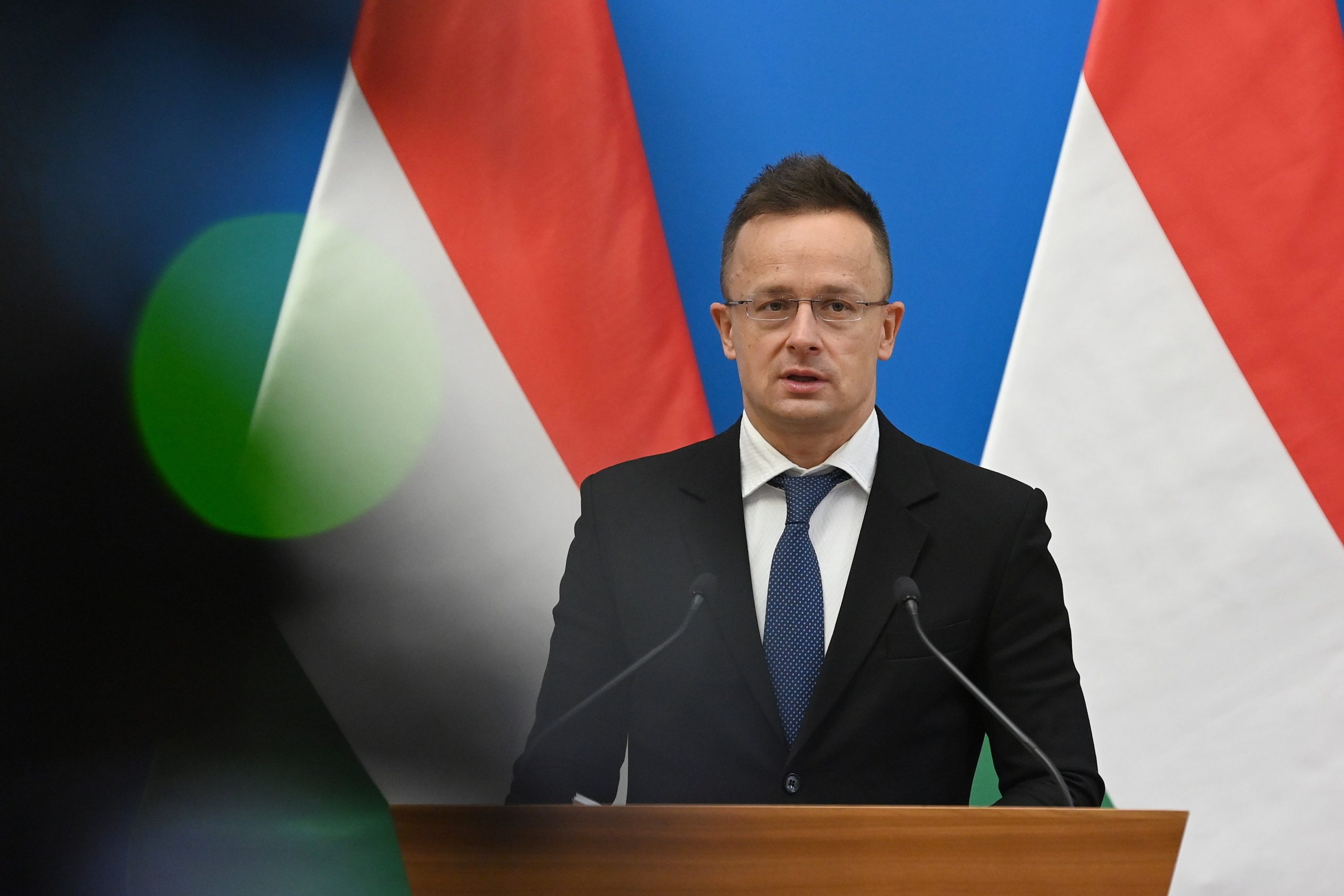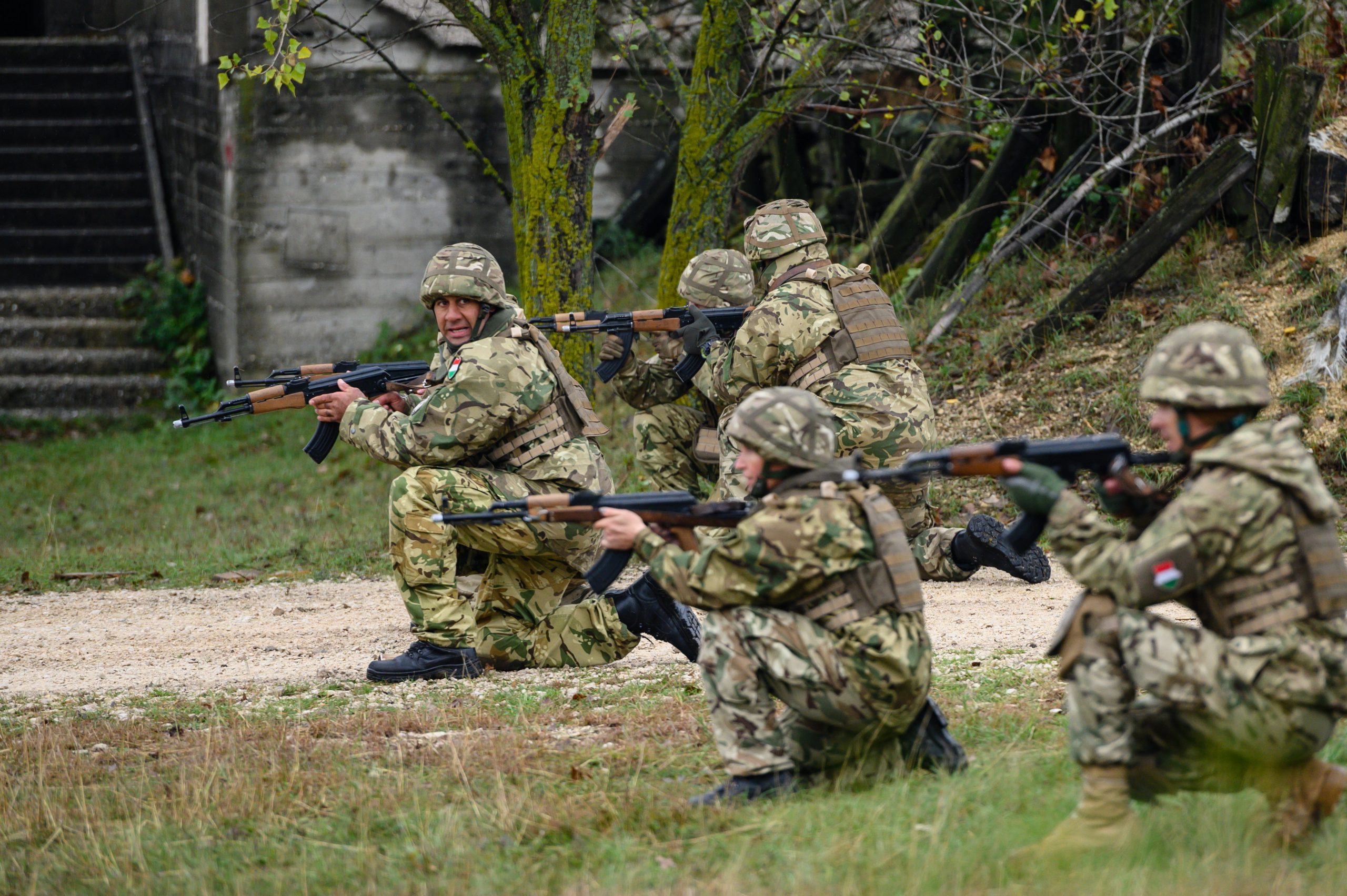
"No one can ask" Hungary to refrain from intensifying bilateral relations with Russia, Szijjártó said, adding that "Foreign policy must no longer be based on symbols or ideologies, but on national interests."Continue reading

As part of their list of demands in order to defuse the crisis over Ukraine, Russia is seeking the withdrawal of NATO forces and weapons in central and eastern Europe. This essentially means that Hungary would have to give up the security provided by the defense alliance since its accession in 1999. Although the situation poses a serious risk to national security, the Hungarian government has not yet reacted to Moscow’s ultimatum, while Viktor Orbán is set to meet with President Putin next week.
Tensions between Russia and Ukraine have escalated to a level we haven’t seen since 2014. In recent weeks, Moscow deployed more than 100,000 troops near its border with Ukraine. Meanwhile, Western officials say Russia is ready for an invasion and President Putin only needs to give the green light. The situation has intensified to the point that some countries have already started withdrawing staff from their embassies in Ukraine.
Although Russian officials have insisted that Moscow has no plans to invade Ukraine, and that the massive troop buildup is just for exercises, the country also warned the West that NATO’s expansion to Ukraine and other ex-Soviet nations is a “red line” that must not be crossed. Many fear Russia’s threat could easily escalate into an open military conflict.
Analysts say Putin’s plan is to redraw the post-Cold War boundaries of Europe, establishing a broad, Russian-dominated security zone. Ukraine plays an important role in this aim, which is why Moscow wants to bring the Eastern European country back under its control.
In December, Russia put forward a rather aggressive list of security guarantees they want the West to agree to in order to lower tensions and defuse the situation over Ukraine.
The demands include a ban on Ukraine entering NATO, but perhaps more importantly, a limit to the deployment of troops and weapons to Nato’s eastern flank. The latter condition is also particularly important from Hungary’s perspective.
Under the ultimatum, Russia and other countries that were members of NATO before 1997, would be forbidden to station troops and military equipment in “other European countries” that were not included before 1997.
Since Russian troops had already withdrawn from the countries of the former Warsaw Pact by the 1990s, this would effectively only impose an obligation on the Western powers.
The convoluted wording implies that all NATO troops would have to withdraw from the countries that became members after 1997 – which includes most of the former Soviet bloc, among them, Hungary. (All central and eastern European countries except for Serbia have joined NATO since its founding in 1949, which currently has 30 members).
Another important point of Moscow’s demand would prohibit NATO from “any military activity” in Ukraine, Eastern Europe, the South Caucasus (including NATO candidate Georgia), and Central Asia.
In short, the listed demands focusing specifically on the post-Soviet region would mean a return to the pre-1997 military status quo.
The absurdity of the demand could perhaps best be described by the fact that ‘all NATO troops’ include the armies of these countries, given that these countries are themselves members of NATO.
As Telex notes in an article focusing on the issue, although it is a less emphasized aspect in the news, a return to the 1997 configuration of NATO infrastructure would also be a serious blow to the military alliance.
It would deprive the alliance of the numerous central and eastern European reserve bases which are ready to receive troops for training exercises or troop reinforcements in the event of a conflict.
The Russian Foreign Ministry made it specifically clear last Friday that the demand also covers the 6,000 US troops on rotation in Romania and Bulgaria.
Russian chief of diplomacy, Sergey Lavrov, said the demand was “about withdrawing foreign troops, equipment and weapons, as well as about other steps aimed at restoring the 1997 configuration of those countries who weren’t NATO members at that time, and that includes both Bulgaria and Romania.”
Just as the US and the EU before, both countries were quick to reject the Russian ultimatum.
The situation between Ukraine and Russia is now so tense that many are speculating not whether an open armed conflict will break out, but when. Meanwhile, the Hungarian government’s official comments on the crisis remain extremely cautious.
So much so, that no one in the Orbán administration has responded to the Russian demand of the withdrawal of Nato troops, which would seriously affect Hungary’s security. Neither Foreign Minister Péter Szijjártó nor PM Viktor Orbán, who is scheduled to travel to Moscow next week to meet Putin, said anything in regard to Moscow’s demand.
Featured photo illustration by Tamás Vasvári/MTI